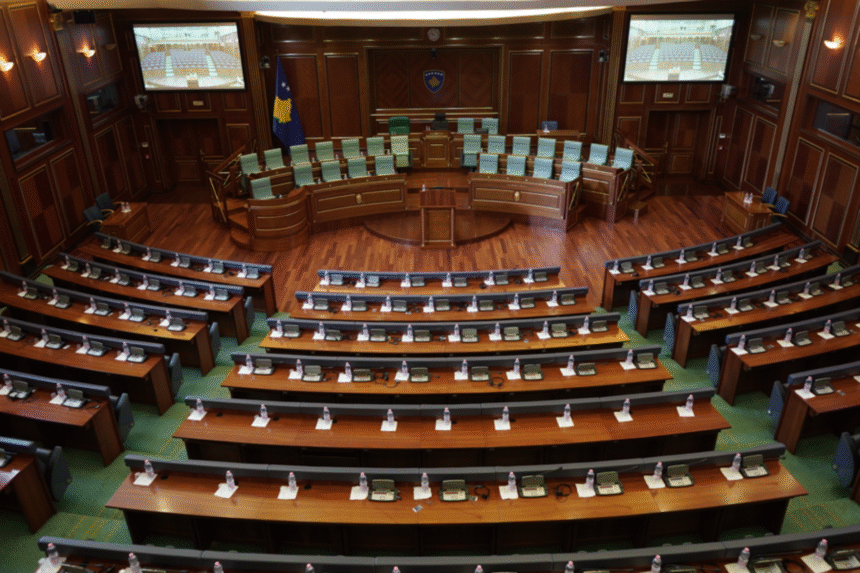Kosovo remains trapped in a deep institutional vacuum, as repeated attempts to elect the Speaker of Parliament have failed. Despite a ruling by the Constitutional Court requiring the Assembly to be constituted within 30 days, lawmakers have not reached agreement, raising alarm among both domestic and international actors.
For President Vjosa Osmani, this stalemate is not merely a procedural issue but a serious obstacle to strategic projects ranging from EU integration reforms to defense and economic agreements with international allies.
The United States has also expressed concern, warning that the blockade is resulting in “missed opportunities for Kosovo.”
Constitutional Deadline Approaching
The current deadline expires on September 18, but no candidate from the ruling Vetëvendosje (VV) party has managed to secure enough votes. Sessions on August 20 and 22 ended without progress. The constitutional session, which began back in April 15, is set to continue on August 24.
Osmani has called the situation a “state emergency.” Her media adviser, Bekim Kupina, stressed that without a functional Assembly and government, Kosovo risks jeopardizing crucial reforms, energy infrastructure projects, and strategic defense and economic agreements already discussed with the U.S. administration of President Donald Trump.
Last month, Osmani met in Washington with U.S. Deputy Secretary of State Christopher Landau and other senior officials, highlighting the urgency of institutional stability to advance partnerships in energy, defense, and IT sectors.
International Pressure
The U.S. Embassy in Pristina urged political leaders to act in line with the Constitutional Court’s decision, stressing that the people of Kosovo expect leadership to prioritize stability and progress.
“This ongoing blockade is leading to lost opportunities for Kosovo. It is time for the leadership to prioritize progress and stability in the best interest of all citizens,” a spokesperson said.
The EU Office in Kosovo echoed this view, saying that swift formation of Parliament and Government is essential to push forward key reforms. Similarly, the Italian Embassy, representing QUINT countries, expressed hope that all parties will act responsibly to avoid further delays.
Warning of Institutional Collapse
Analyst Lulzim Peci of KIPRED warned that failure to meet the deadline could push Kosovo into “institutional anarchy.”
Currently, the Constitutional Court operates with only seven judges instead of nine. With Judge Bajram Latifi’s mandate expiring in September, the Court could be left without quorum if Parliament remains blocked, paralyzing decision-making.
“This could lead to a collapsed state, with devastating consequences for democracy, relations with international partners, and the economy,” Peci cautioned.
He added that the crisis exposes Kosovo as an “irresponsible state” where narrow political interests prevail over national priorities—damaging credibility with Western partners.
European Integration Stalled
Journalist Augustin Palokaj highlighted that Kosovo’s crisis has two dimensions in Brussels. The EU is adopting both a passive approach, letting local leaders face the consequences of their political deadlock, and a warning approach, stressing the risks of inaction.
As a result, key benefits are already blocked:
- Over €80 million in EU Growth Plan funds cannot be disbursed without a functional government and Assembly to ratify agreements.
- Kosovo’s application to join the Council of Europe is stalled due to lack of institutions.
- EU sanctions remain in place following tensions in the north.
“Kosovo is the only Western Balkans country without EU candidate status. Without institutions, it cannot advance toward membership,” Palokaj noted.
International intervention seems unlikely, leaving the full responsibility on Kosovo’s political class.







